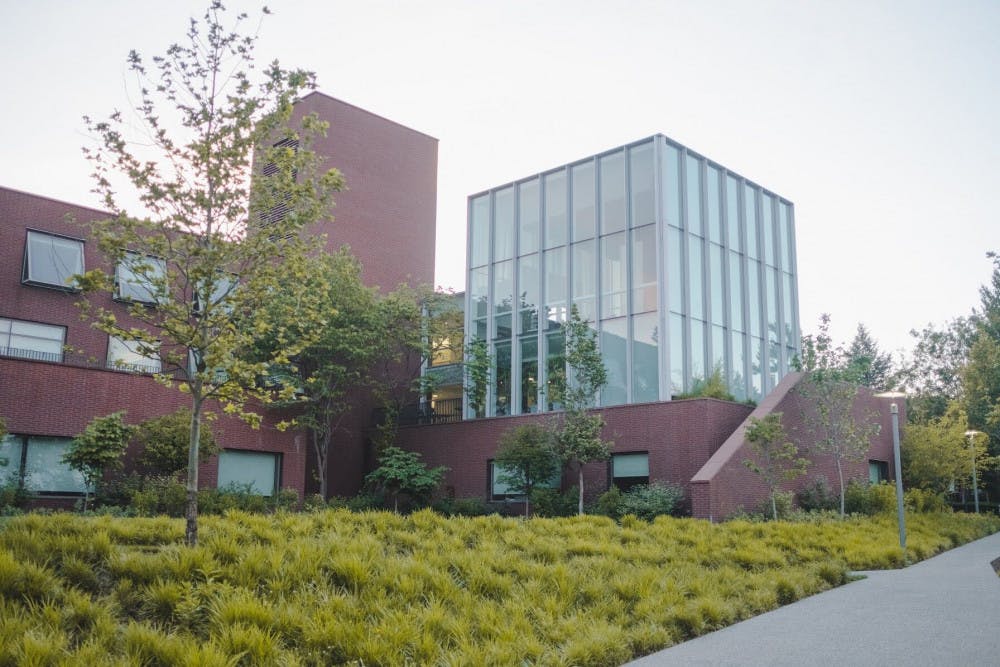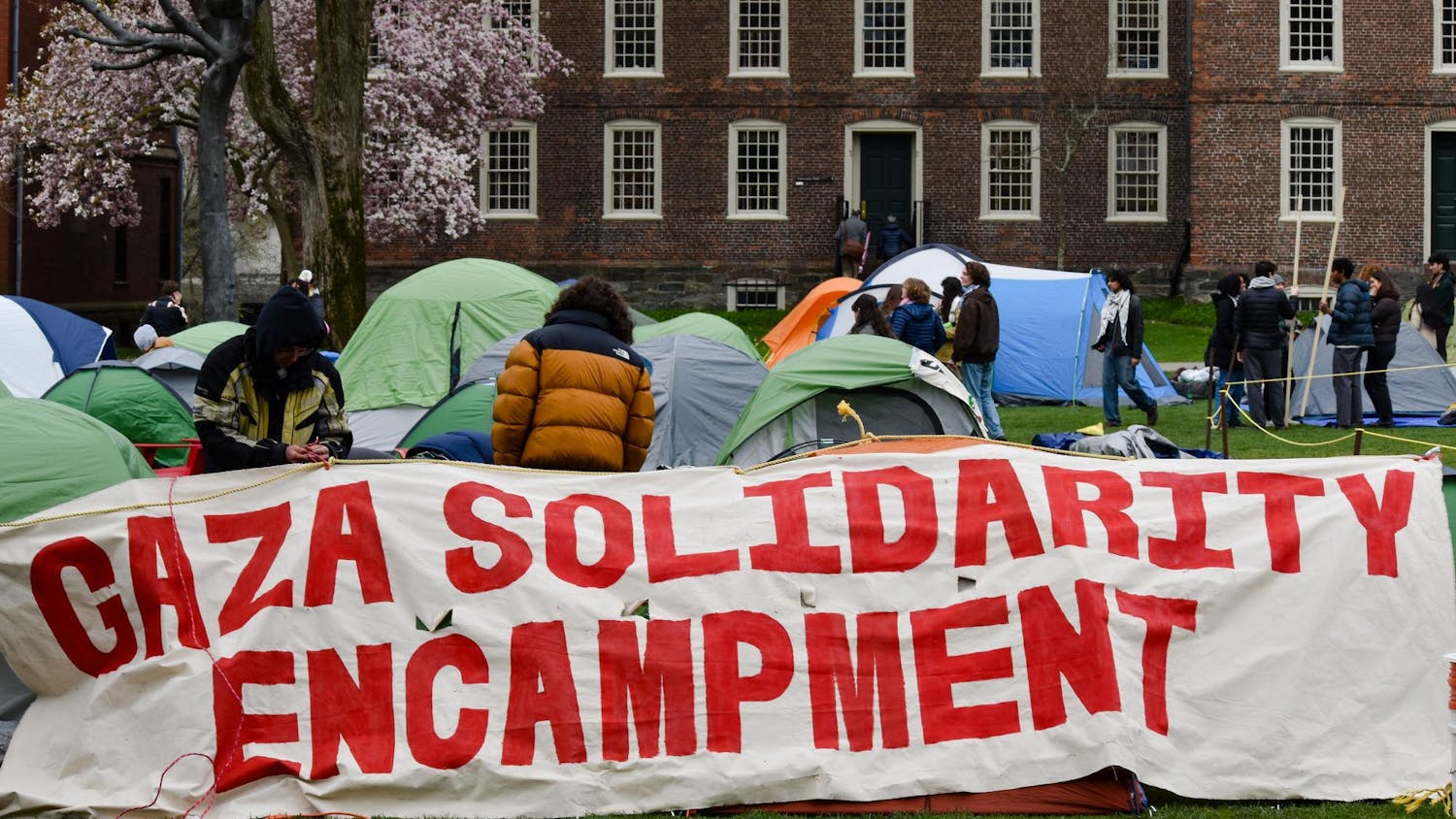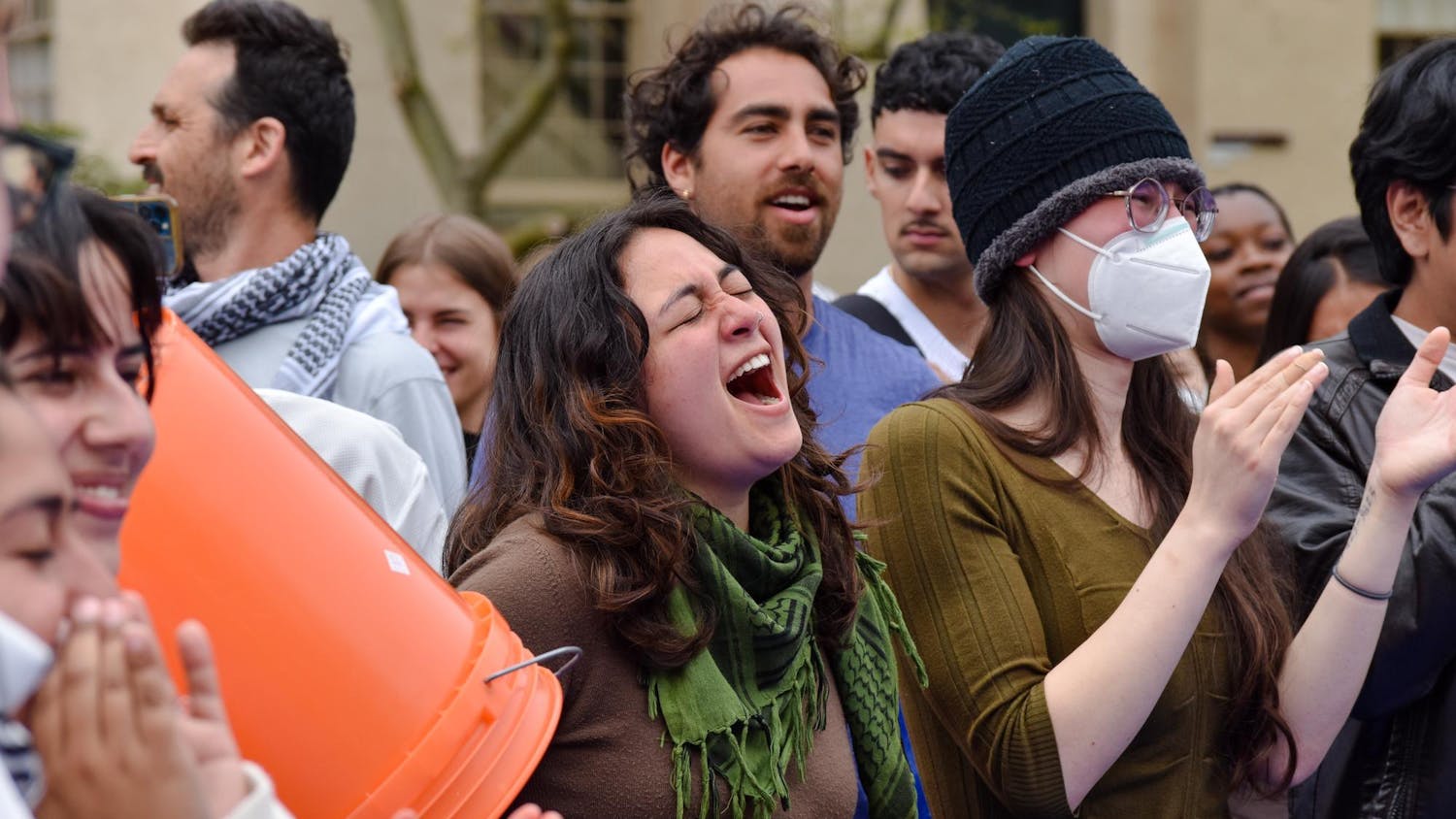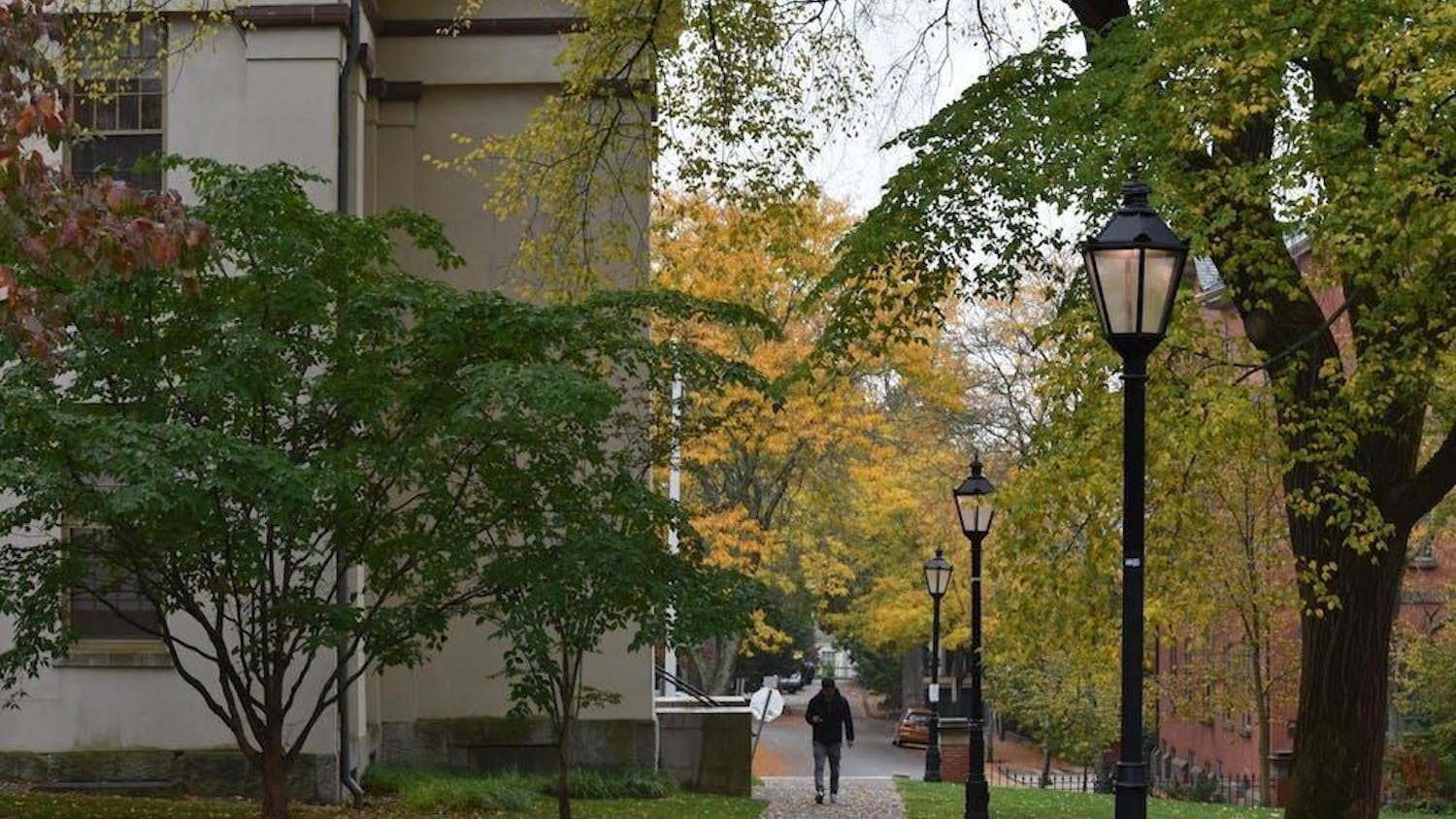Professor of Biology Kenneth Miller ’70 is no stranger to using technology as a tool for teaching. The end of the recent spring semester marked the completion of Miller’s 40th year at the University, but he remembers as early as the mid-1980s — “before the Internet was called the Internet” — using an old Macintosh computer in his lab and giving students a URL to access course material.
Four decades later, as Miller prepares for the largely remote academic calendar ahead under the recently announced tri-semester model, he feels well-equipped for the transition to Zoom classes and virtual teaching.
“Even before the switch in mid-March this year, I was regularly building an online presence for (BIOL 0200: The Foundation of Living Systems), video-recording all of my lectures, posting all of my slides, putting up all the handouts, posting copies of old exams to use as study guides,” he said.
Though the transition will pose unique hurdles for each faculty member and the landscape of their discipline, some University faculty are cautiously optimistic about a safe return to campus as College Hill prepares to open its gates to students in a staggered, de-densified model.
Weighing excitement to welcome students back to campus with the hope that their own health will be protected, five University faculty members told The Herald about their anticipations for the upcoming fall.
Miller was struck by the unique formulation of hybrid learning proposed by Brown upon their initial unveiling of a potential tri-semester plan earlier this spring. He said the plan was “both interesting and creative,” as peer institutions across the country also grappled with how to bring back students safely and thoughtfully. As the University neared a final decision, Miller felt that the Faculty Executive Committee was a helpful resource in representing the wishes of the faculty to the administration.
As a member of the FEC, Professor of Political Science and International and Public Affairs Ross Cheit said that he and other members met weekly with President Paxson P’19 and Provost Richard Locke P ’18. In these meetings, “we were assured, and I think absolutely have been given power of decision” in how faculty would conduct their courses.
Miller felt that faculty’s foremost concern — the protection and prioritization of their health and safety — was ultimately honored in the University’s decision-making by allowing them to opt out of in-person teaching, even if their course enrollments will not exceed 20 students.
Associate Professor of Sociology Nicole Gonzalez Van Cleve said she appreciates that the “comfort level of faculty, and the comfort level of students, has been a centered priority” in the University’s decision. “I was happy with the announcement ... because some students do need to be on campus to continue their education, and I think there are safe ways to do that," she said. "I think that populating the campus to conform to the new safe standards is the priority. So I think what’s really wonderful is Brown is not trying to force an old system into a new reality.”
Leslie Bostrom, professor of visual art and chair of the department, acknowledged that the administration has “worked very hard to make a safety plan for when everybody comes back,” she said. “And I do trust them, I think that (President Paxson) has done a great job, and (Provost Locke) has done a great job.”
As a leader in her department, the task of protecting the health and interests of her faculty is in Bostrom's hands. “How do you get the best quality education, but at the same time keep everybody safe?” Bostrom asked. “That’s the hard juggle.”
Cheit speculates that if COVID-19 cases continue to climb at an untenable rate, the University could decide to go fully remote, as opposed to the current hybrid model. But given recent news from Immigrations and Customs Enforcement that international students holding F-1 visas will not be permitted to study in the United States if their course load is fully remote, the University may be more hesitant to shift classes to an entirely online format.
Miller plans to teach his fall coursework remotely, he said, though he laments the loss of personal connection to students that is difficult to replicate through a computer screen, over Zoom. In place of his tradition of Friday lunches with students in the Ratty or V-Dub, Miller says he may have to conduct virtual ice-breakers with students. But “when we go entirely online, you're never going to be able to form that personal bond in that exact same way,” he said.
Cheit will also teach POLS 1050: Ethics and Public Policy, a usually large lecture class, remotely in the fall, a large lecture course that mostly attracts juniors and seniors. But like many other professors, he will have to reinvent the shape of the course for an online format.
He acknowledged the inevitable complexity of a decision concerning the resumption of on-campus operations, noting that some disciplines are more adaptable to a virtual setting than others.
With the announcement, Cheit is now concerned with the distribution of labor across the three semesters, which will vary by department. While emergency circumstances surrounding the sudden evacuation of students this spring entailed lower expectations for a smooth transition to remote learning, “people will expect more” for this fall now that faculty have a clearer picture of the trajectory of the academic calendar.
While Cheit predicts that many faculty will be wary of teaching a summer semester, which may mean that they will have no break before the beginning of the fall semester of the 2021-22 academic calendar, Gonzalez Van Cleve volunteered to teach SOC 1116 Criminal Courts and the Law in an Era of Mass Incarceration in the summer with the hope that in-person teaching may be more feasible by that time.
“I actually raised my hand to do that for the freshmen because I thought, first of all, I’ll be really excited to meet them, and they’ll be excited to be on campus,” she said. “And maybe this will be a new tradition, maybe this is something where Brown ends up having a vibrant summer session that most universities don’t have, and it’s born out of this national tragedy.”
The “joy in learning,” Gonzalez Van Cleve said, “comes from human connection.”
Bostrom said that many of her colleagues similarly volunteered for summer teaching, excited about the potential for teaching outdoor, socially distanced classes. For example, a course dedicated to drawing with watercolors is “perfect for teaching outdoors,” she said, and a sculpture installation course can utilize materials from nature to enhance the art.
Bostrom and her colleagues are eager to welcome students back to a reconfigured List Arts Center, with acrylic barriers between staggered desks and smaller classes of masked students. Though she, like all other department chairs across campus, must adapt her discipline to the constraints of the pandemic, she is pleased that the tri-semester model will allow for on-campus instruction in any capacity.
Michelle Bach-Coulibaly, a senior lecturer in theatre arts and performance studies, relies on movement and body language for her teaching that is lost over Zoom. Unlike faculty in other fields whose transition online requires lecturing virtually and uploading course material to Canvas, Bach-Coulibaly must reimagine her approach to teaching dance composition entirely to account for the loss of in-person interaction.
“I’m reinventing my own universe here,” she said.
Bach-Coulibaly has served as a first-year advisor for the past several years in the Curricular Advising Program. From that experience, she understands the importance of grounding connections and finding stability on campus, and wishes that first-years had been given priority in the tri-semester model as a group of students particularly vulnerable to the transition. “I saw how important it was to have that initial contact, not only with the physical spaces — to get them acclimated, to welcome them onto campus, to work with their CAP advisors, to really give them a solid sense of belonging,” she said.
“I want the people who want to be there to be there, that’s it,” Bach-Coulibaly said. “We will create an environment that’s really conducive to deep learning, that’s all we can do, that’s what the job is.”
In March, after students were abruptly sent home due to growing concerns about the pandemic, Gonzalez Van Cleve wrote a letter to her students preaching the importance of self-care and expressing her support during a difficult transition. On Twitter, her letter received over 11,000 likes and over 3,000 retweets. She hopes to reemphasize the same care for her students in the coming academic year, and “honor what people are going through,” she said.
“The coronavirus didn’t disappear because we’re exhausted from staying inside,” Gonzalez Van Cleve said. “And I would say likewise, the issues facing students, as we see with international students right now, did not disappear because a few months have passed.”

ADVERTISEMENT




